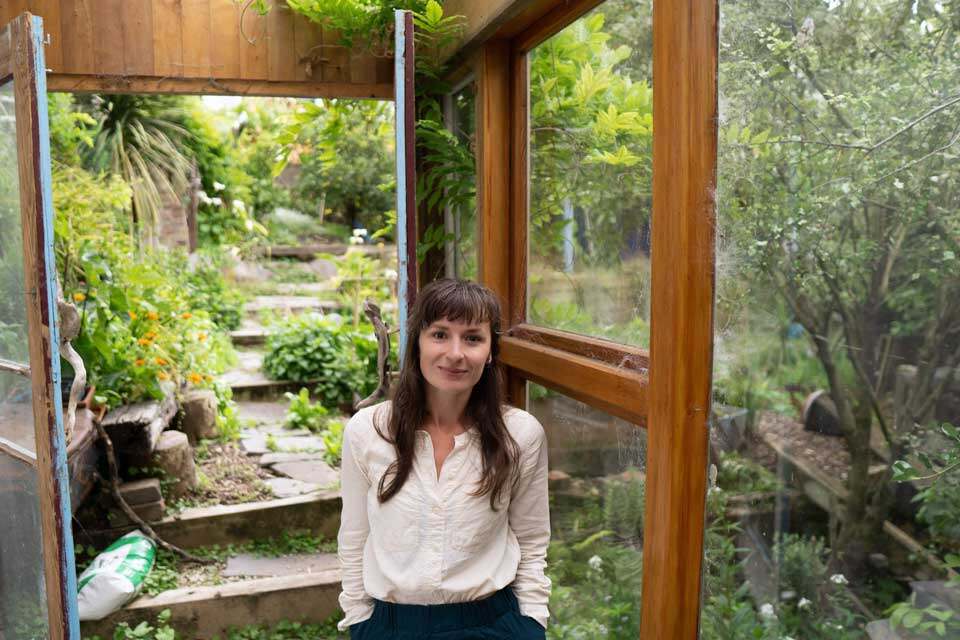New Zealand insects, whose lives are often invisible to city-dwellers, are put under the microscope in a new, richly illustrated book.


Six-legged Ghosts: The insects of Aotearoa by author-illustrator Lily Duval, published by Canterbury University Press, explores the place of insects in history, art, culture and language.
Duval hopes her book will help to bring the pollinators, waste-disposal experts, and ecosystem engineers critical to life on Earth into the spotlight.
“The word ‘ghosts’ in the title reflects how insects can be invisible — especially for those of us who live in urban environments. Their numbers are plummeting, but we don’t even realise what we’re losing,” she says.
The book opens with an investigation of the way the 19th-century scientific mindset shaped – and sometimes constrained – attitudes to insects and contrasts this with stories from te ao Māori that demonstrate a different relationship with the insect world. But its scope is not confined to historical perspectives; the beautifully illustrated book also considers the treatment of insects in contemporary art and culture, details the stark realities of the insect apocalypse, and highlights conservation initiatives seeking to prevent further extinctions.
West Africa seems an unlikely place to begin a deep dive into the world of Aotearoa New Zealand’s native insects, but it was in Senegal in 2018 that a homesick Lily Duval began to paint watercolours of New Zealand wildlife.
“I dropped out of the French language course I was doing and started painting threatened New Zealand species,” says the self-taught artist. “I’d expected to do a lot of birds, but instead I was drawn to insects and other invertebrates.”
After returning to New Zealand, Duval’s growing fascination with insects led her to pursue a master’s degree at Te Whare Wānanga o Waitaha | University of Canterbury (UC) — but not, as might be expected, in one of the Science disciplines. Her thesis, titled ‘An Inordinate Disdain for Beetles: Imagining the insect in colonial Aotearoa’, was undertaken at UC’s New Zealand Centre for Human-Animal Studies in the School of Humanities, and one of her supervisors, Professor Philip Armstrong, suggested it had the makings of a book.
Over 100 of Duval’s distinctive watercolours make up the many images that accompany the text in Six-legged Ghosts. To create her illustrations, Duval works from macro photographic images and often uses multiple views of the same species to create a naturalistic depiction.
“There’s been a long history of representing bugs as these symmetrical, alien objects,” she says. “I’ve tried to disrupt that by showing the insects in lifelike ways that reflect their vitality.”
While writing her book Duval also worked as the researcher of RNZ’s popular ‘Critter of the Week’ slot, a role that led her to collaborate with chief executive of Forest and Bird, Nicola Toki, on Critters of Aotearoa: 50 bizarre but lovable members of our wildlife community.
Duval is confident the fascination she’s developed for her subject will help her book engage with a wide audience.
“I’m not a scientist, and I’m not even someone who has loved bugs their whole life. But I hope my book shows that you can learn to love something by looking closely and getting to know it.”
Six-legged Ghosts: The insects of Aotearoa by Lily Duval is published by Canterbury University Press, RRP $55, Casebound, 250 x 190mm, full colour, 296pp, ISBN: 978-1-98-850343-1, available in bookstores and from Canterbury University Press. Six-legged Ghosts is published with the support of Creative New Zealand and will be launched at the University Bookshop Canterbury on 11 April by Philip Armstrong and Ruud Kleinpaste.
About the author
Lily Duval is an author and illustrator passionate about the natural world. She illustrated Critters of Aotearoa: 50 bizarre but lovable members of our wildlife community, which was chosen as a Storylines Notable Book in 2023. She writes and illustrates for a range of organisations, including the Department of Conservation, Forest & Bird and Conservation Volunteers New Zealand. Lily has been the researcher and writer for RNZ’s ‘Critter of the Week’ show since 2021 and is part of the organising team for the Bug of the Year competition. She has a Master of Arts (Distinction) in English Literature from the University of Canterbury. Lily lives in Ōhinehou Lyttelton and spends her free time gardening and tramping.



































